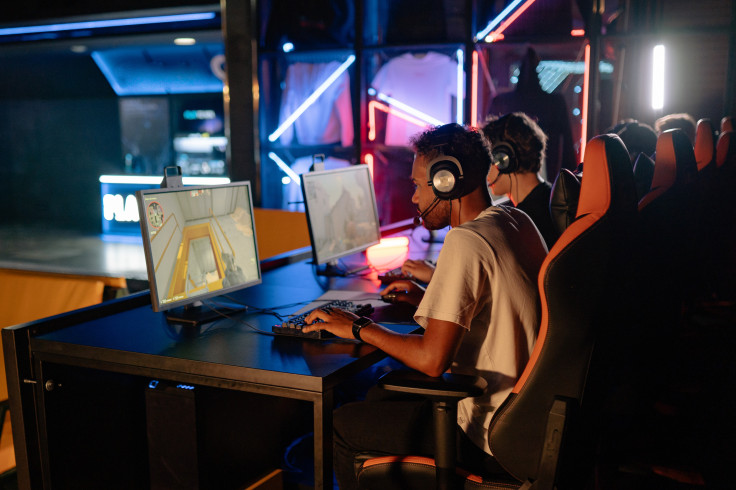
The gaming industry is one of the most profitable entertainment sectors in the world, surpassing the music and movie industries combined. Even if you're not a gaming fanatic, industry professionals in this arena are the creative geniuses behind many of the virtual experiences, products, and online cultures you may love engaging with.
Despite skyrocketing profitability and popularity, the gaming industry has faced several setbacks recently. Since the gaming industry is inherently tied to tech, financiers and corporate stakeholders often follow the trends of their Silicon Valley counterparts.
In the tech space, about 180,000 US workers were laid off in the past three years. This tech recession impacted gaming as well causing large studios to lay off thousands of employees despite the industry's relatively positive outlook. Estimates report that over 10,000 gaming professionals were laid off in 2023 with an additional 8,000 already laid off in 2024. Layoffs have been fueled by a number of arising issues. Overhiring during the pandemic and investors' hesitancy to provide funding for projects as tech began downsizing were chief among them. Since venture capitalists appeared unsure, this fear trickled down the ranks into the studio owners and even employees.
For studios still producing games, capital was mostly inaccessible, which forced them to rely on non-traditional financing. Increasing saturation in digital marketplaces was another factor that further strained investment opportunities in game development. This is mainly due to the power marketplace owners now have over game developers.
Despite what the studio closures and layoffs suggest, the gaming industry is still poised to grow. In the last decade, the American gaming industry tripled its size from $15.2 billion to $56.6 billion. This trend is unparalleled in entertainment, which is why gaming is still on track to recover from previous obstacles. The pandemic also deeply shifted how gaming is viewed socially, making it a more acceptable and popular activity for entertainment and a source of community. This increases the consumer base of gaming significantly, unlocking great profit opportunities.
To withstand the complex gaming landscape, studios have employed several strategies to survive. Larger companies reduce their staff and downsize their office space. Independent studios that are already operating on a smaller scale may find it beneficial to adapt their offerings to the market instead. Industry insiders like Jim Welch, the Founder and Creative Director of The Devhouse Agency claim that this strategy was the main reason why the independent software development studio has been able to weather the recent market storms.
"The gaming industry is going through some difficult challenges that are putting significant pressure on studios and workers, but I believe that the best way to survive is to adapt," says Jim Welch. "Being agile and responsive to the market is key to success. If your company can respond instead of staying stagnant, it can multiply your chances of withstanding shocks."
The Devhouse Agency specializes in developing Augmented Reality (AR), Virtual Reality (VR), and video games. The Dallas-based studio was acquired in 2022 when the industry was booming, but the markets changed quickly. As financiers pulled their funding and the hype cycle of several technologies ended, million-dollar game projects failed and workers began to panic. The Devhouse Agency's acquisition was promising, but the buyer's structure made it challenging to respond to new trends. Sensing that he could turn the situation around, Jim bought the company back in 2023 with the mission to rapidly adapt.
As conditions worsened, Jim was unwavering about his promise to avoid studio closure. This was partly due to the compassion he had for his employees, but also because The Devhouse Agency needed stability to make it through these difficulties.
The Devhouse Agency stands out among other independent agencies because of its startup-like nature, strong company culture, and quick delivery processes.The company's adaptability can be seen in its wide range of work including an Unreal Engine location-based mixed reality experience that simulates a multi-user lunar space mission. The company also recently shipped a popular first-person shooter game on PC, Xbox, and PlayStation as an external development partner for another game studio. These projects exemplify The Devhouse Agency's unique skill set for pioneering creative solutions and ensuring their successful release.
The Devhouse Agency isn't limited to working within the gaming industry. The company recently partnered with the Abilene Cultural Affairs in Texas to develop the Abilene Storybook Experience, an AR-driven app that lets people visit digital sculptures in a 'treasure hunt' format. Whether they are modeling hyper-realistic digital twins, building engaging mobile AR applications, or developing immersive VR games, Devhouse Agency delivers next-generation experiences.
As the gaming industry approaches continued challenges in 2024, professionals should stay optimistic about the sector's future and consider new strategies for growth. By shifting with the market, studios of all sizes are more likely to overcome fluctuating market conditions.
If you're looking to design immersive experiences that enhance brand awareness or develop stunning games, consider partnering with The Devhouse Agency to discover what kind of innovation is possible.





